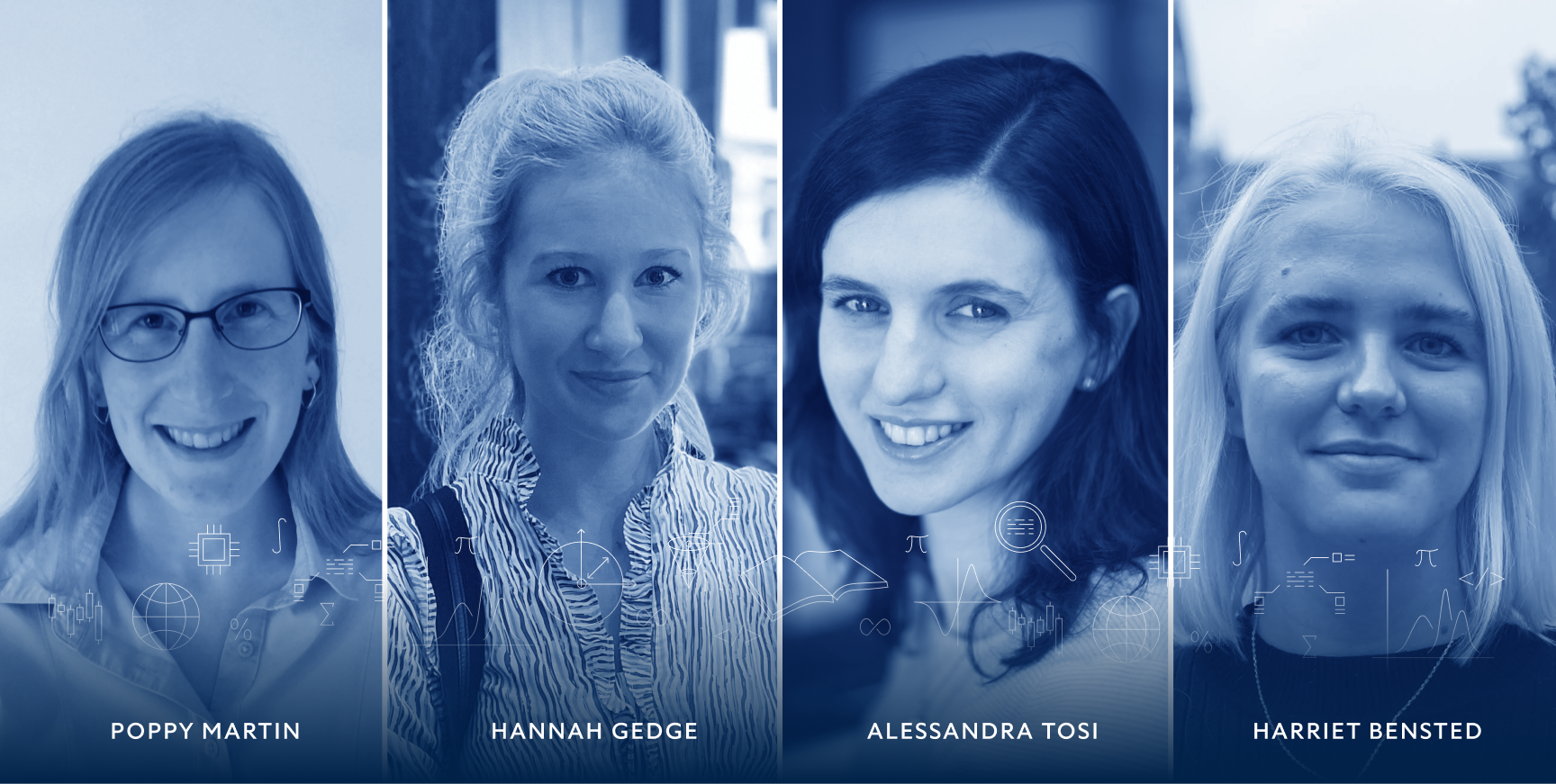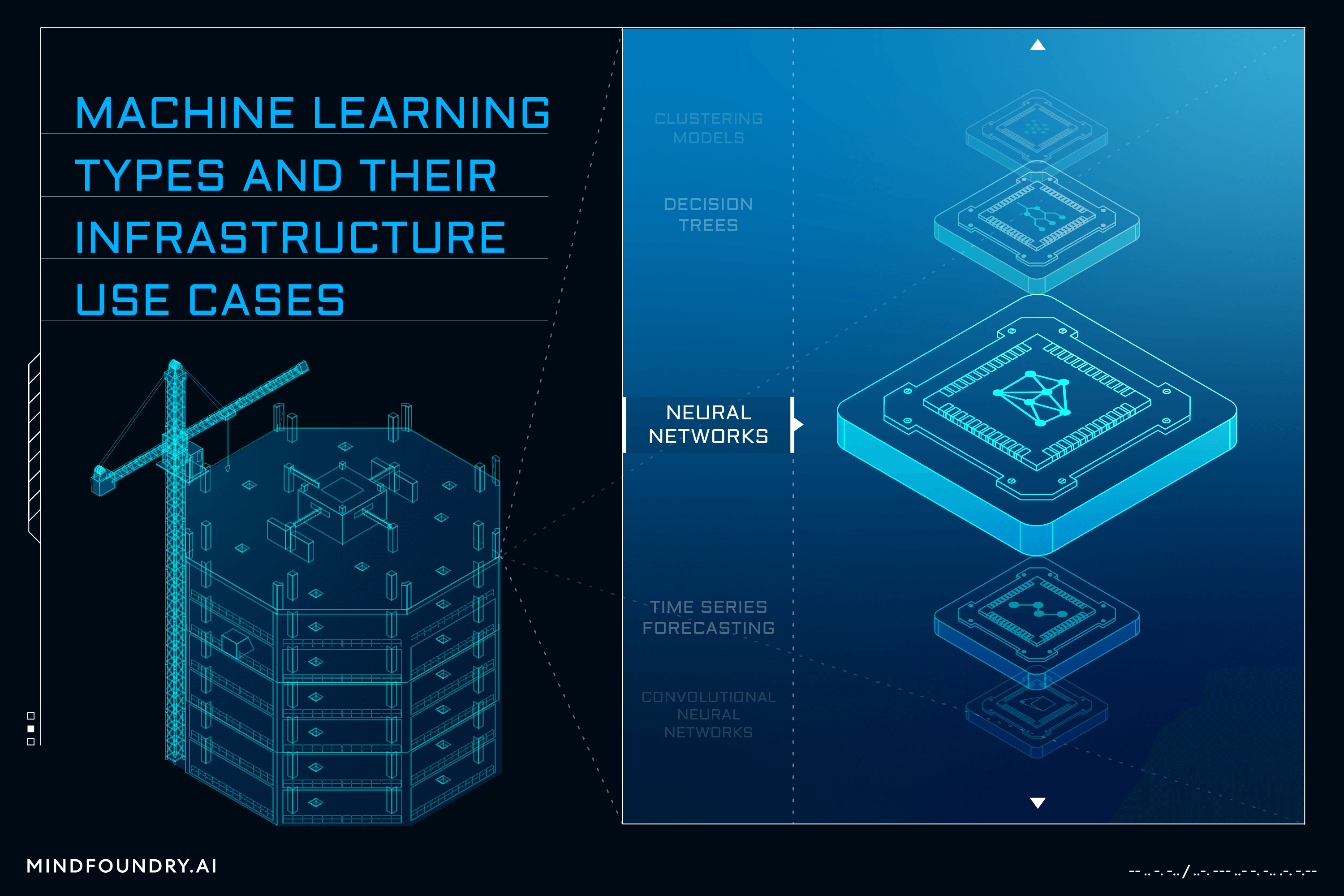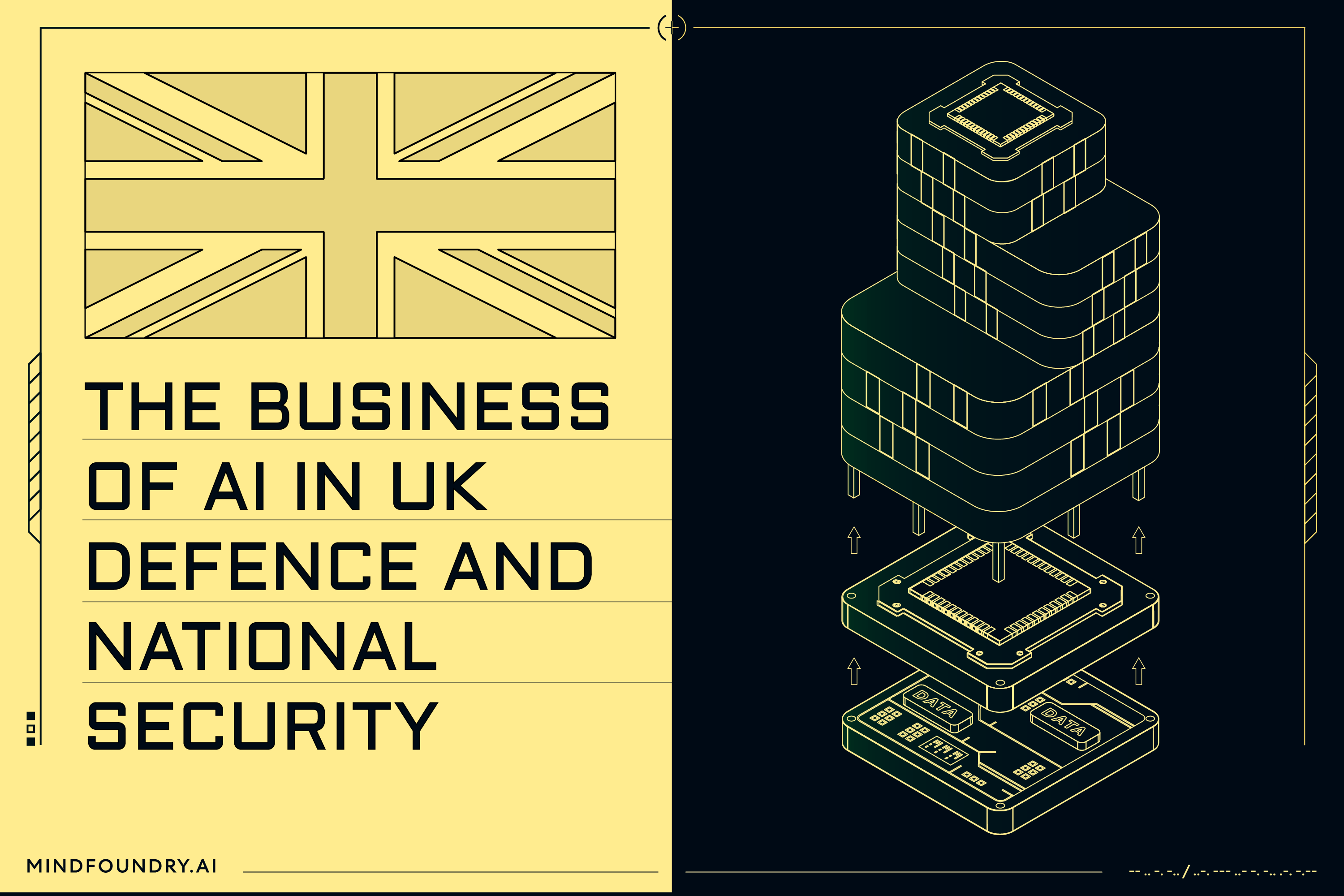Insuring Against AI Risk: An interview with Mike Osborne
When used by malicious actors or without considerations for transparency and responsibility, AI poses significant risks. Mind Foundry is working with...

The International Day of Women and Girls in Science, supported by the UN, is a fantastic opportunity to acknowledge the inspirational contributions of women across the globe in science and technology who continue to break down stereotypes and pioneer gender equality in a traditionally male-dominated industry. We have the chance to inspire and encourage girls and women of all ages, backgrounds and abilities to discover their potential within science and become leaders in an exciting and innovative field.
To celebrate this important day, we are proud to showcase some of the extraordinary women at Mind Foundry who are making significant contributions to science and technology as they share their journeys so far and the advice they would give to others. Including:
Poppy, a Head of Applied Machine Learning at Mind Foundry, leads the Defence & National Security delivery teams to develop innovative solutions to complex problems.
Hannah, a Key Partnerships Manager in Defence & National Security at Mind Foundry, where she helps build and manage the relationships with our customers and partners to ensure continued alignment and success in the delivery of our solutions.
Alessandra, a Senior Research Scientist at Mind Foundry with a PhD in probabilistic Machine Learning and on a mission to push the boundaries of AI by integrating software solutions and original research.
Harriet, a Senior Project Manager at Mind Foundry, where she is responsible for managing a portfolio of projects in the Insurance sector.

Poppy: I’ve always been interested in science and technology; however, I was inspired to pursue this as a career after attending summer school at the University of Southampton. I was most interested in the Astronomy talks, so I opted to attend the University of Southampton to complete a degree in Astrophysics. As part of this degree, I completed a project at the Harvard-Smithsonian Center for Astrophysics, where I discovered my passion for research. Following the completion of my PhD in Radio Astronomy at the University of Southampton, I chose to apply my passion for research by working on solving complex real-world problems and joined Mind Foundry.
Hannah: I started my career at an engineering consultancy and was lucky enough to work on some massive infrastructure projects like the Heathrow Expansion and Crossrail. Although this opened my eyes to the importance of STEM in transforming our national infrastructure, it was when I worked in banking and directly with many innovative fintechs that I realised I wanted to work in tech. After hearing about the exciting and fast-paced world of start-ups and seeing companies going from strength to strength, I knew I wanted to be even closer to these companies that were using technology in various ways to completely transform an industry or part of society. So I decided I would pivot and pursue a job at an AI company.
Alessandra: I have always had a great curiosity, which, paired with love for mathematics (the elegant language of the universe), has led me into the way of science and technology. To this day, I feel the enthusiasm to learn and discover more.
Harriet: Previously, I worked in jobs where my daily tasks were the same, which became very monotonous. There was already an established way that the job would run, and whilst there was the opportunity to discover new processes or make things more efficient, I needed more. I wanted a career that challenged and encouraged me to learn something new daily. I knew that I always enjoyed working on the unknown. So, I aspired to be in a role where I could apply my problem-solving skills and one which would require me to develop my knowledge and understanding. A career in science and technology gives me that balance of working on what I am good at and enjoy while regularly learning new things and being challenged.

Poppy: In a predominantly male-dominated industry, I have sometimes faced challenges in getting my voice heard or in it being assumed that I will take minutes or organise an agenda. Fortunately, these two challenges offer a solution to each other, as if you’re in charge of managing the agenda, you can ensure everyone is given an equal opportunity to have their voices heard.
Hannah: Earlier in my career, I was concerned about needing the right academic background to work in a particular sphere or industry. However, it became apparent when I joined a tech start-up that you do not need to have a traditional STEM background to add value and perspective and make positive changes in a science and technology company. The problems we’re trying to solve involve a holistic, multi-disciplinary approach, and either creative or pragmatic thinking can provide immense value to the solutions we’re building. Diversity of thought is hugely important.
Alessandra: During my career, I have been lucky to meet great mentors and colleagues who have helped me find my path across challenges and achieve my goals. I am glad that I am now able to give back to the community in a similar way.
Harriet: I have experienced imposter syndrome among my self-doubts. Although I have an undergraduate degree in the field of science, it isn't technology related, and I don't have a master's or a PhD like others who work in the field. Having said that, what I love about working in science and technology is that, from my personal experience, the most important things are having an open mind and a willingness to learn. I feel lucky to work for a company like Mind Foundry, which has so many incredible people willing to share knowledge and learn together, as well as a group of amazing, accomplished women who inspire me to further my career.

Poppy: Whilst I have received awards and accolades for my research work in the past, I am most proud of the awards I have received for my STEM outreach work. I began to lead an established STEM outreach program in 2019. Since then, I have organised after-school clubs at local schools and run career talks/panels for students to learn more about their career options in science and technology. This became more challenging during the covid pandemic, and in March 2020, I had to cancel all of our in-person events and pivot, like many organisations, to hosting virtual events.
Hannah: It’s been thrilling to be a part of a start-up that is transitioning and going through enormous growth - last year, we doubled in size! I'm proud of experiencing the ever-changing dynamics from spinout to scale-up, entering new markets with new products, and knowing first-hand all the behind-the-scenes work that had to go into it to make it happen. However, I would say that my biggest celebration is that making the transition from financial services to technology has been hugely rewarding, both personally and professionally. I am confident that staying in tech both now and in the future aligns with my interests and aspirations, so for me, the risk of a new role in an unfamiliar sector paid off.
Alessandra: I am proud to be a Director of Women in Machine Learning, where I contribute to increasing the awareness and appreciation of the achievements of women in Machine Learning through various initiatives.
Harriet: I am still in the early stages of my career, so I hope my biggest successes are yet to come. That said, I am proud to have worked with an incredible group of scientists and engineers to build the Mind Foundry Academy. Another huge success for me is project managing a portfolio of innovative Machine Learning projects in the insurance space, including with our partner Aioi Nissay Dowa Insurance.

Poppy: Take opportunities when they come your way. You may not know whether you will enjoy the opportunity, but you will always learn something from every new experience and challenge. For instance, I was not interested in learning code as a teenager. However, after completing a summer placement in a software department at a local company, I discovered a passion for developing code to solve complex problems.
Hannah: Society has already adopted, adapted and entwined with technology, from generative AI to Distributed Ledger Technologies. However, we are only scratching the surface of what the future can hold. It is a hugely exciting time to be in STEM! Just by growing up around transformative technologies, today's younger generations will naturally increase the numbers of those interested in careers in this space. However, I would say that you shouldn’t take a job in STEM because you have been told it's an excellent area to be in or because of the pay or the employment prospects. The real reason you should do it is that it’s your passion and it interests you. We spend much of our life at work, so make sure you enjoy it.
Alessandra: Be yourself; bring your perspective and your enthusiasm to the table. There are so many problems in science and technology waiting just for you, so explore them!
Harriet: Don't second guess; go for it! It's one of the best choices I made in my career, and I love it. Now, I can't imagine myself working in any other field or returning to the button-pushing jobs I used to work. If you love learning and investigating the new, innovative and unknown, you will never regret pursuing a career in science and technology.

When used by malicious actors or without considerations for transparency and responsibility, AI poses significant risks. Mind Foundry is working with...

AI and Machine learning is a complex field with numerous models and varied techniques. Understanding these different types and the problems that each...

While the technical aspects of an AI system are important in Defence and National Security, understanding and addressing AI business considerations...